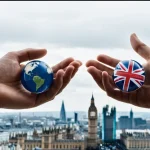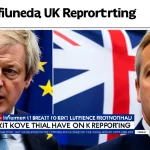Immediate Impacts of Current UK Policies on International Relations
The UK foreign policy has undergone notable shifts following Brexit, resulting in immediate effects on international alliances. A key change is the UK’s recalibrated diplomatic approach, focusing on forging new partnerships beyond the European Union. This shift aims to diversify economic and political ties, signaling a move away from traditional EU-centric diplomacy.
Global partners have responded variably to these UK foreign policy changes. Some nations view the UK’s evolving stance as an opportunity to deepen bilateral relations, particularly within the Commonwealth and emerging markets. Conversely, certain EU countries express cautious disengagement, reflecting early indicators of tension that affect alliance cohesion.
In the same genre : How Are Recent Immigration Policies Affecting the UK Economy?
Domestically driven policy adjustments have also influenced external perceptions. The UK’s emphasis on sovereignty and regulatory independence resonates with some allies but complicates negotiations with others, demonstrating the delicate balance in maintaining old alliances while building new ones.
Overall, these immediate effects reveal a transitional phase for the UK’s international alliances, with diplomatic realignments that require careful navigation to sustain influence and trust in the global arena.
This might interest you : What impact does Brexit have on UK media coverage?
Influence of UK Trade and Economic Policies on Global Partnerships
UK trade policy post-Brexit has introduced immediate effects that reshape economic relations with both established and emerging markets. New trade agreements emphasize diversification, moving beyond a solely EU-focused strategy. This shift impacts global trade dynamics, as the UK seeks to solidify economic alliances by securing deals with countries in the Commonwealth and the US, while navigating complex tariff arrangements.
How do these changes affect existing relationships with the EU and Commonwealth nations? Precision answer: The UK’s new trade policies create a dual dynamic, fostering stronger ties with Commonwealth countries through preferential trade terms, while introducing friction in EU relations due to divergence in regulatory standards and tariff applications. This can complicate cross-border commerce, requiring careful negotiation to mitigate disruptions.
These policies also bear on global supply chains, where adjustments in tariffs and standards influence investment flows and the relocation of manufacturing hubs. As a result, the UK’s economic relations reflect a strategic repositioning that aims to enhance competitiveness while managing the inherent risks of transitioning trade frameworks. Such immediate effects signal both opportunities and challenges for sustaining and expanding economic alliances worldwide.





